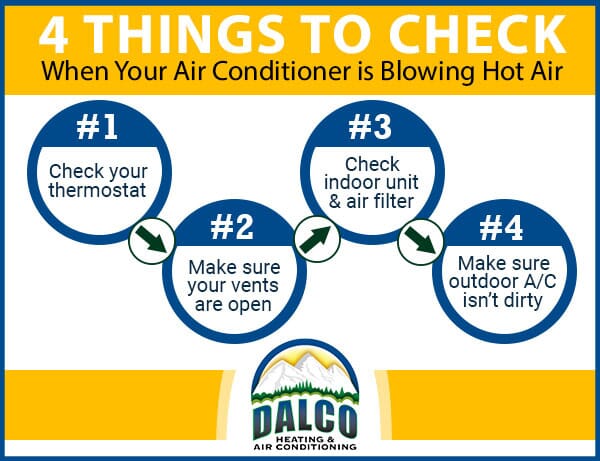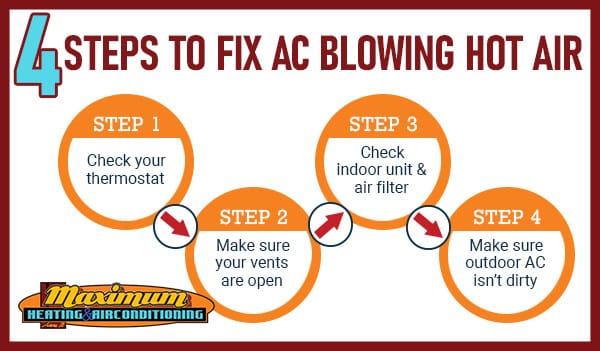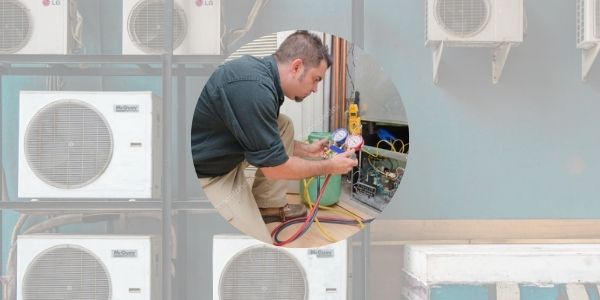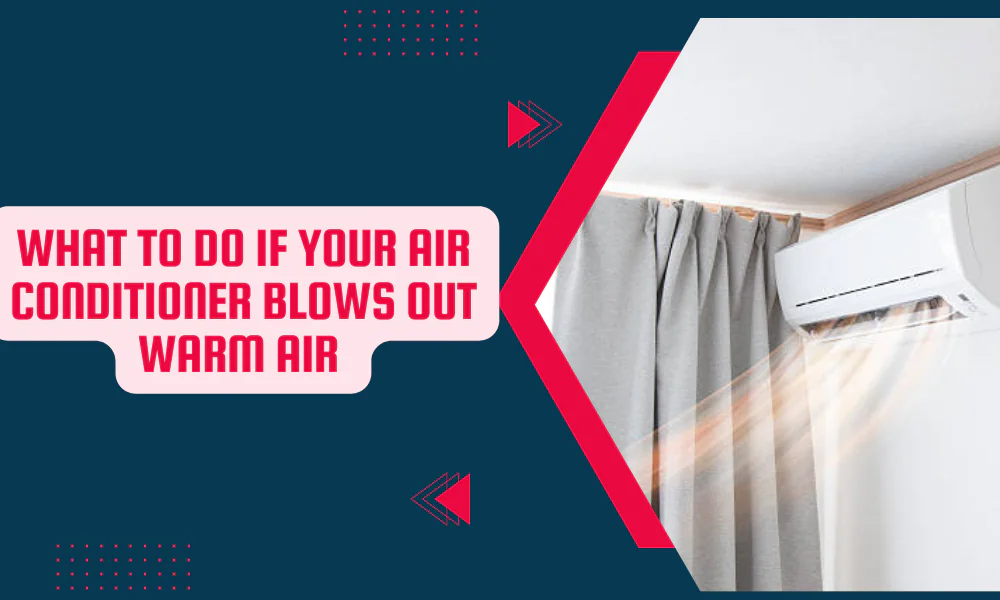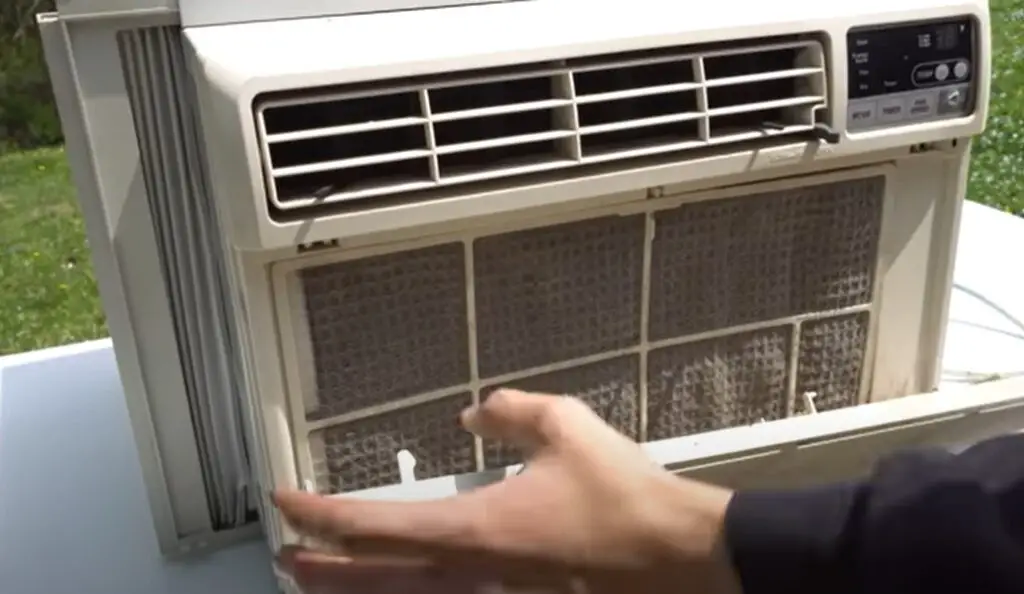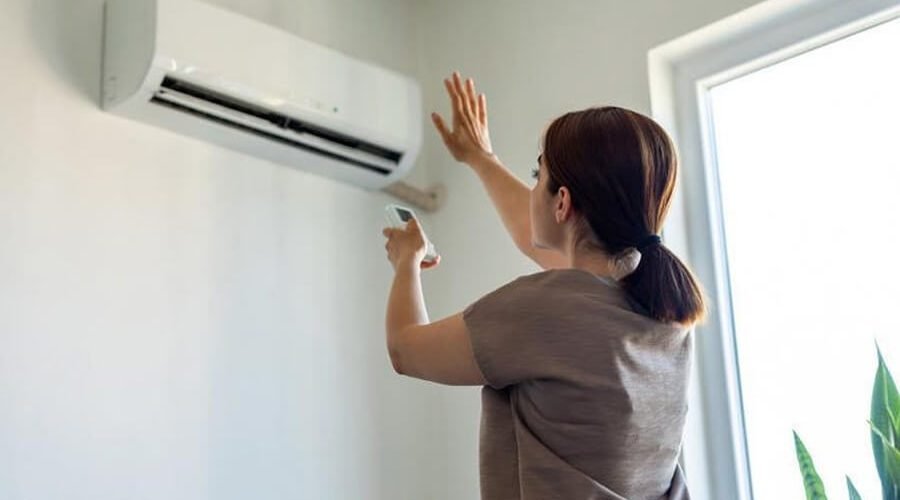What To Do If Your Ac Is Blowing Hot Air
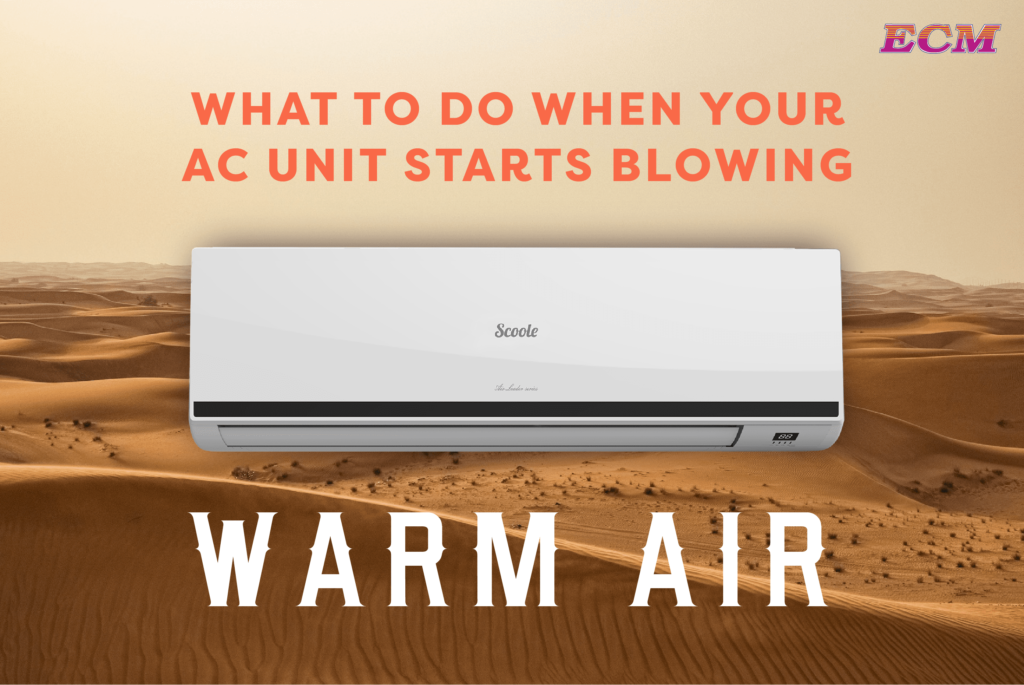
Decoding the Discomfort: Why Your AC is Blowing Hot Air and How to Fix It
Imagine this: it's the peak of summer, the sun is blazing, and you retreat indoors seeking the cool embrace of your air conditioner. But instead of refreshing relief, you're met with a blast of hot air. What went wrong? An AC blowing hot air is a common yet frustrating problem, but understanding the underlying causes is the first step toward restoring your home's comfort. This article breaks down the most frequent culprits, offering actionable advice for homeowners, seasoned HVAC technicians, and property managers alike.
Common Culprits Behind the Hot Air
Several factors can contribute to your AC unit spewing hot air instead of the promised cool. Let’s explore the most prevalent:
1. Refrigerant Leaks: The Lifeblood of Cooling
Refrigerant, often called Freon (although newer systems use more environmentally friendly alternatives like R-410A), is the crucial chemical that absorbs heat from your indoor air and releases it outside. Think of it as the lifeblood of your cooling system. A leak means less refrigerant, reducing your AC's ability to cool effectively. Over time, even a small leak can lead to warm air blowing from your vents.
Homeowner Action: Identifying a refrigerant leak requires specialized equipment. Do not attempt to handle refrigerant yourself, as it can be harmful. Contact a qualified HVAC technician immediately.
Technician Tip: Use a refrigerant leak detector to pinpoint the source. Common leak locations include coils, fittings, and service ports. Repair the leak and recharge the system to the correct refrigerant level based on the manufacturer's specifications.
2. Frozen Evaporator Coil: A Blockage in the System
The evaporator coil, located inside your indoor air handler, is responsible for absorbing heat. When airflow is restricted, the coil can become too cold and ice over. This ice layer acts as an insulator, preventing the coil from effectively absorbing heat and leading to hot air blowing from your vents.
Causes of Frozen Coils:
- Dirty Air Filter: The most common cause. A clogged filter restricts airflow.
- Restricted Return Airflow: Blocked return vents or closed interior doors can reduce airflow to the system.
- Low Refrigerant: Ironically, low refrigerant can also cause a coil to freeze.
- Faulty Blower Motor: If the blower motor isn't running properly, it won't move enough air across the coil.
Homeowner Action: First, check and replace your air filter if it's dirty. Ensure that return vents are clear and unobstructed. Turn off your AC and allow the coil to thaw completely (this may take several hours). Once thawed, turn the AC back on. If the problem persists, call an HVAC technician.
Technician Tip: After thawing the coil, inspect for leaks and check refrigerant levels. Verify proper blower motor operation and airflow across the evaporator coil.
3. Compressor Issues: The Heart of the System
The compressor, located in the outdoor unit, is the heart of your AC system. It circulates the refrigerant and pressurizes it, enabling the cooling cycle. A malfunctioning compressor can significantly impair your AC's ability to cool.
Symptoms of a Failing Compressor:
- Loud Noises: Grinding, rattling, or buzzing sounds from the outdoor unit.
- No Cold Air: The most obvious symptom – your AC blows warm air.
- Increased Energy Bills: A failing compressor may work harder, consuming more energy.
Homeowner Action: Compressor issues are complex and require professional diagnosis and repair. Contact an HVAC technician immediately.
Technician Tip: Check the compressor's electrical connections, run capacitor, and winding resistance. A failing compressor often requires replacement, a costly but necessary repair.
4. Condenser Coil Problems: Heat Rejection Impaired
The condenser coil, also located in the outdoor unit, is responsible for releasing the heat absorbed from your indoor air. If the condenser coil is dirty or blocked, it can't effectively dissipate heat, leading to reduced cooling capacity.
Causes of Condenser Coil Problems:
- Dirt and Debris: Leaves, grass clippings, and other debris can accumulate on the coil.
- Restricted Airflow: Obstructions around the outdoor unit can hinder airflow.
Homeowner Action: Regularly clean the condenser coil by gently spraying it with a garden hose. Ensure that there's at least 2-3 feet of clear space around the outdoor unit.
Technician Tip: Use a coil cleaner to thoroughly clean the condenser coil. Inspect the fan motor and blades for proper operation.
5. Ductwork Leaks: Losing Cool Air Before It Reaches You
Ductwork distributes cooled air throughout your home. Leaks in the ductwork can result in significant energy loss, as conditioned air escapes into unconditioned spaces like attics or crawl spaces. This forces your AC to work harder to maintain the desired temperature, and some rooms may receive insufficient cooling.
Homeowner Action: Inspect accessible ductwork for obvious leaks. Seal any visible gaps or tears with duct tape or mastic sealant. Consider hiring a professional for a ductwork inspection and sealing.
Technician Tip: Perform a duct leakage test to quantify air leakage. Use mastic sealant or foil tape to seal duct joints and seams. Consider insulating ductwork in unconditioned spaces to further improve efficiency.
6. Thermostat Malfunctions: A Simple Yet Overlooked Cause
Sometimes, the problem isn't with the AC unit itself, but with the thermostat. A malfunctioning thermostat may not be accurately sensing the room temperature or properly signaling the AC to turn on.
Homeowner Action: Check the thermostat settings to ensure it's set to "cool" and the desired temperature is lower than the current room temperature. Replace the thermostat batteries if necessary. If the problem persists, consider replacing the thermostat.
Technician Tip: Verify the thermostat's calibration and wiring connections. Test the thermostat's functionality using a multimeter.
Cost Considerations: Repair vs. Replacement
When faced with a major AC repair, such as a compressor replacement, it's essential to weigh the cost against the benefits of replacing the entire system. Consider the following:
- Age of the System: AC units typically last 10-15 years. If your system is nearing the end of its lifespan, replacement may be a more cost-effective option.
- Repair Costs: Get quotes for both repair and replacement. If the repair cost is a significant portion of the replacement cost, replacement may be the better choice.
- Energy Efficiency: Newer AC models are significantly more energy-efficient than older models. A new system can save you money on your energy bills in the long run. Look for units with a high SEER (Seasonal Energy Efficiency Ratio) rating. SEER measures cooling efficiency; the higher the SEER, the more efficient the unit.
- Refrigerant Type: Older systems may use R-22 refrigerant (Freon), which is being phased out. Repairs involving R-22 can be more expensive due to limited availability.
Example: If your 12-year-old AC system requires a compressor replacement costing $2,000, and a new, more efficient system costs $4,000, replacing the system might be a smarter long-term investment. Not only will you avoid future repairs on an aging unit, but you'll also benefit from lower energy bills.
Preventative Maintenance: Avoiding Future Headaches
Regular preventative maintenance is crucial for keeping your AC system running smoothly and efficiently. Here are some essential maintenance tasks:
- Regularly Replace Air Filters: Change your air filter every 1-3 months, depending on usage and air quality.
- Clean Condenser Coils: Clean the condenser coils at least once a year, or more frequently if you live in a dusty environment.
- Inspect Ductwork: Check accessible ductwork for leaks and seal any gaps.
- Schedule Professional Maintenance: Have your AC system professionally inspected and serviced at least once a year. A technician can identify and address potential problems before they escalate.
Understanding Key HVAC Terms
To better understand your HVAC system and communicate effectively with technicians, here are some key terms to know:
- SEER (Seasonal Energy Efficiency Ratio): A measure of cooling efficiency. The higher the SEER, the more efficient the unit.
- HSPF (Heating Seasonal Performance Factor): A measure of heating efficiency for heat pumps. The higher the HSPF, the more efficient the unit.
- BTU (British Thermal Unit): A measure of heat. AC capacity is often expressed in BTUs.
- Refrigerant: The chemical that absorbs and releases heat in the cooling cycle.
- Evaporator Coil: The coil inside the air handler that absorbs heat from indoor air.
- Condenser Coil: The coil in the outdoor unit that releases heat to the outside air.
- Compressor: The pump that circulates refrigerant in the cooling cycle.
- Air Handler: The indoor unit that contains the evaporator coil and blower motor.
Conclusion
An AC blowing hot air is a problem that demands prompt attention. By understanding the common causes, taking appropriate action, and prioritizing preventative maintenance, you can ensure your AC system delivers reliable cooling and maintains a comfortable indoor environment. Whether you're a homeowner, HVAC technician, or property manager, remember that proactive maintenance and timely repairs are key to maximizing the lifespan and efficiency of your cooling system. When in doubt, consult with a qualified HVAC professional for expert diagnosis and repair.

